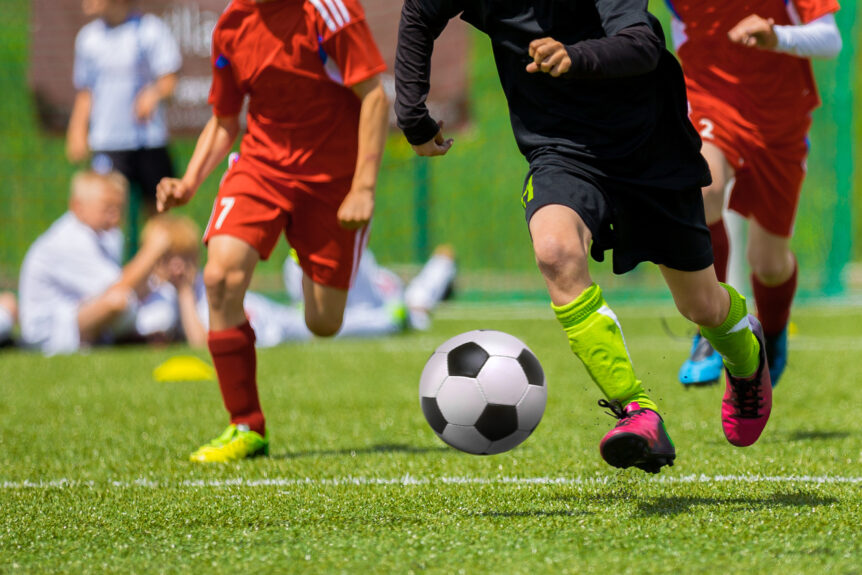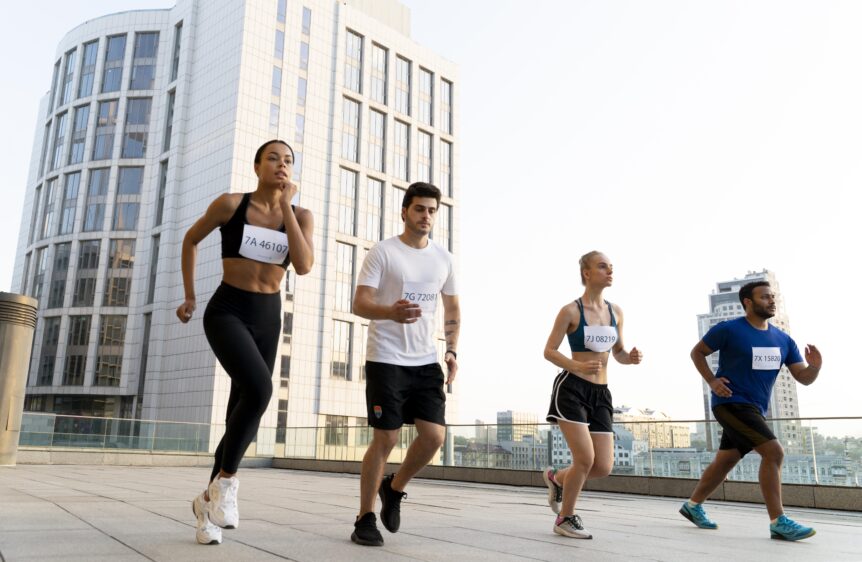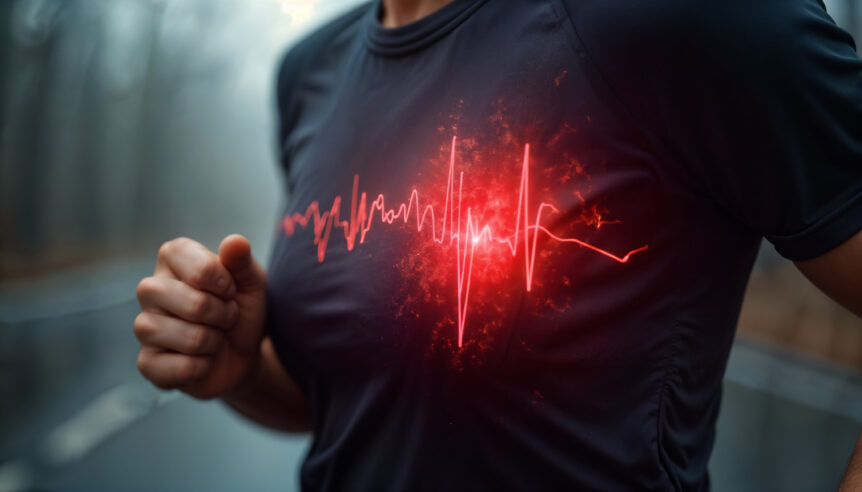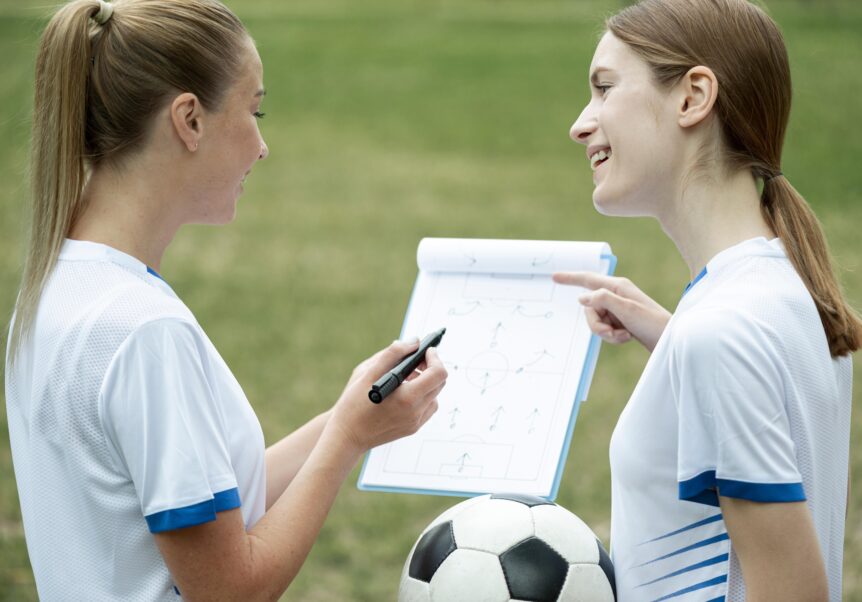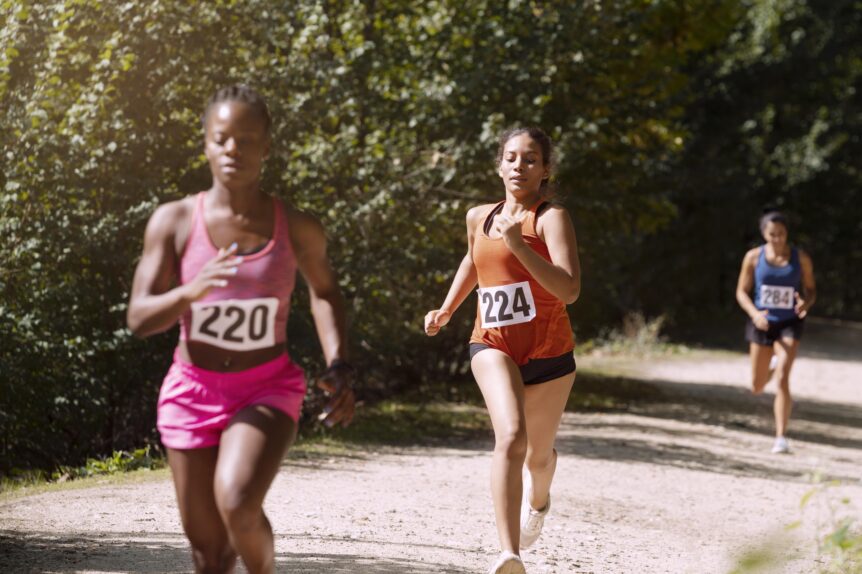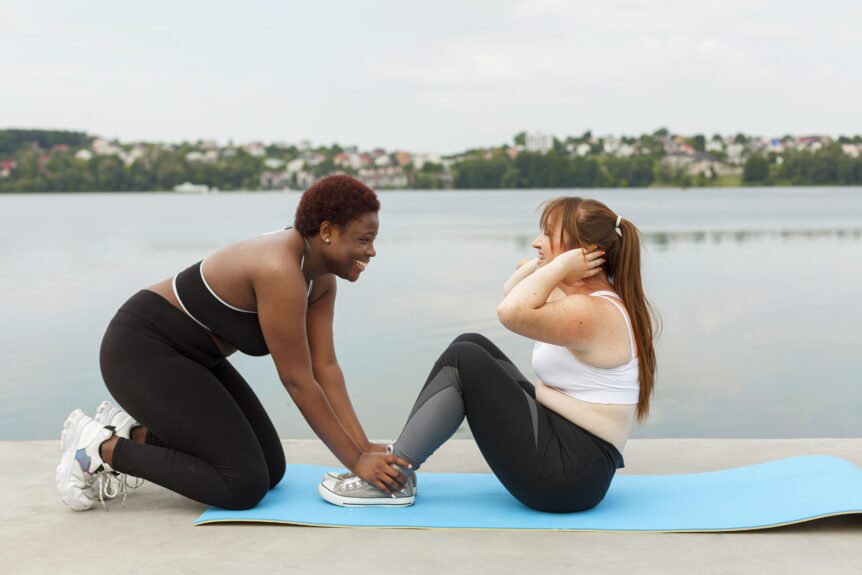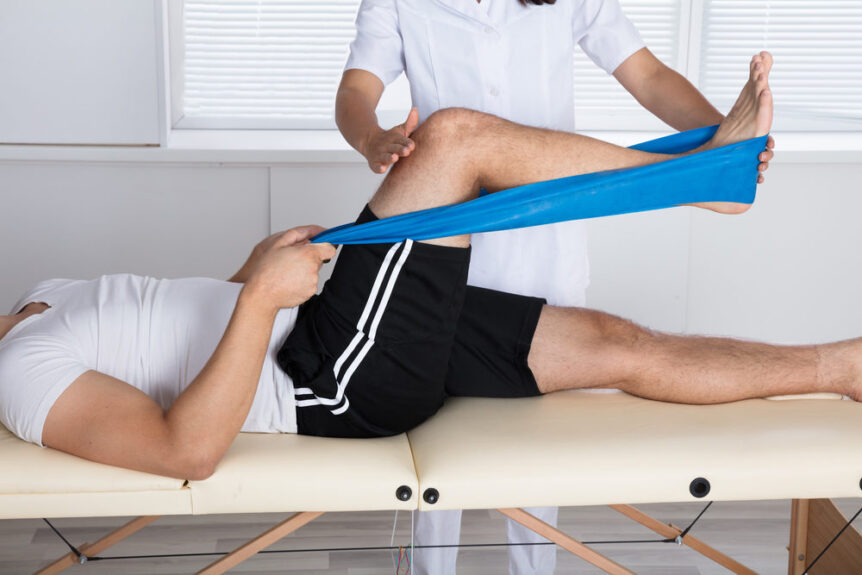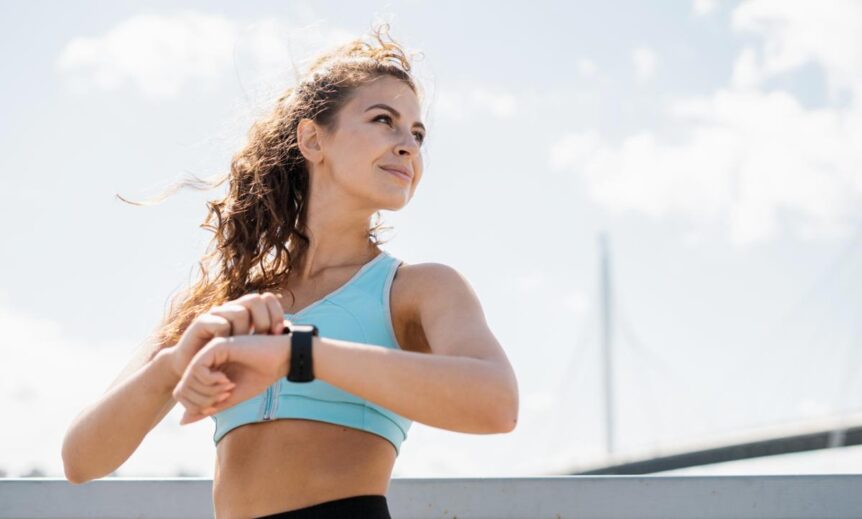Zhang, G., Brink, M., aus der Fünten, K. et al. Sports Med 55, 193–201 (2025). Injury risk in professional football (soccer) is increased in the weeks following return-to-play (RTP). However, the time course of injury risk after RTP (the hazard curve) as well as its influencing factors are largely unknown. This knowledge gap, which is arguably due to the volatility of instantaneous …
Physiology and Pathophysiology of Marathon Running: A narrative Review
Braschler, L., Nikolaidis, P. T., Thuany, M., Chlíbková, D., Rosemann, T., Weiss, K., Wilhelm, M., & Knechtle, B. (2025). Sports Medicine – Open, 11(1), 1-67. The aim of this review was to provide a comprehensive review of the benefits and risks of marathon training and racing on different organ systems. A predefined search strategy including keywords (e.g., marathon, cardiovascular system, etc.) and free …
Evidence of Left Ventricular Cardiac Remodeling After 6 Weeks of Sprint Interval Training
Eriksson LM, Hedman K, Åström‐Aneq M, Nylander E, Bouma K, Mandić M, Gustafsson T, Rullman E. Scandinavian Journal of Medicine & Science in Sports. 2024 Dec;34(12):e70007. Sprint interval training (SIT) leads to similar improvements in maximal oxygen uptake (V̇O2max) and maximal cardiac output as previously reported for traditional endurance training, but the exercise-induced effects on cardiac remodeling are still largely …
Optimal Frequency of Interrupting Prolonged Sitting for Cardiometabolic Health: A Systematic Review and Meta-Analysis of Randomized Crossover Trials
Yin, M., et al. (2024), Scand J Med Sci Sports, 34: e14769 Increasing evidence highlights the efficacy of interruptions in prolonged sitting (i.e., activity/sedentary breaks) for improving cardiometabolic health, but precise conclusions and recommendations regarding the optimal interruption frequency remain poorly defined. This systematic review and meta-analysis aimed to directly compare the effect of different frequencies of interrupting prolonged sitting …
Fair and Safe Eligibility Criteria for Women’s Sport: The Proposed Testing Regime Is Not Justified, Ethical, or Viable
Williams, A., et al. (2024), Scand J Med Sci Sports, 34: e14753. In an invited editorial, Tucker et al. [1] addressed the eligibility controversy regarding the Paris 2024 Olympic boxing competition. They cited Lundberg et al. [2] concerning the in/eligibility of transgender women for the female sports category and identified performance differences between males and females alongside studies involving testosterone suppression. Several …
Standardising health history and injury surveillance of participants in endurance events: a modified Delphi consensus statement from the AMSSM runner health consortium
Tenforde AS, Kraus E, Kliethermes SA, et al . British Journal of Sports Medicine Published Online First: November 2024. Endurance events are popular worldwide and have many health benefits. However, runners and Para athletes may sustain musculoskeletal injuries or experience other health consequences from endurance events. The American Medical Society for Sports Medicine (AMSSM) Runner Health Consortium aimed to generate consensus- based survey items for use …
Cardiorespiratory fitness, body mass index and mortality: a systematic review and meta-analysis
Weeldreyer NR, De Guzman JC, Paterson C, et al. British Journal of Sports Medicine Published Online First: 13 November 2024. Sudden cardiac arrest (SCA) during sports can be the first symptom of yet Objective The purpose of this review was to assess the joint relationship of cardiorespiratory fitness (CRF) and Body Mass Index (BMI) on both cardiovascular disease (CVD) and all-cause mortality risk. Design A systematic review and meta-analysis …
Patients follow four clusters of participation in physical exercise after an ACL injury. Results from the NACOX cohort study
Svensson, Melanie et al. Journal of Science and Medicine in Sport, 2024, in press Objectives To explore how participation in physical exercise (PE) changes over time after an anterior cruciate ligament (ACL) injury. Additionally, to identify factors associated with participation in PE by analyzing longitudinal data. Design An explorative analysis of the NACOX study, a prospective multicenter cohort study. Methods …
Physical activity, sedentary behavior and microbiome: A systematic review and meta-analysis
Pérez-Prieto, Inmaculada et al. Journal of Science and Medicine in Sport, Volume 27, Issue 11, 793 – 804 Background The effects of physical activity and sedentary behavior on human health are well known, however, the molecular mechanisms are poorly understood. Growing evidence points to physical activity as an important modulator of the composition and function of microbial communities, while evidence …
2025 ACSM Worldwide Fitness Trends: Future Directions of the Health and Fitness Industry.
Newsome, A. M., Batrakoulis, A., Camhi, S. M., McAvoy, C., Sansone, J. (Sudock) & Reed, R. ACSM’s Heal. Fit. J. 28, 11–25 (2024). The health and fitness industry continues to grow despite the uncertainty that followed the COVID-19 pandemic. Increased active memberships, participation in personal and small group training, and rates of older adults utilizing health clubs indicate that the …

